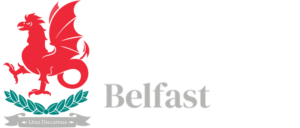“To have another language is to possess a second soul.” – Charlemagne
In the Languages Department, we aim to provide a vibrant and stimulating environment in which our pupils can feel encouraged and supported on their road to linguistic success.
Pupils study both French and Spanish from Year 8. A mixture of digital technology and structured booklets and textbooks are used to deliver high-quality lessons to our young linguists.
Equipping our pupils with the skills and confidence to communicate in a second language provides them with countless advantages in what is an increasingly globalised world. Not only can linguists enjoy more employment opportunities, enhanced communication skills and a heightened understanding of other cultures, but studies have also shown that language learning improves memory and brain function!
It is important to our department that we provide pupils with the experience of using French and Spanish in real-life situations. Each year, we organise a trip to an area where French or Spanish is spoken, allowing them to put their language skills to the test.
At A Level, our students are allocated weekly one-to-one lessons with native speakers, allowing them to develop into confident and fluent speakers of their language of study. Many of our A Level students choose to go on and study languages at universities in the UK and Ireland.
Pupils are also encouraged to engage in extra-curricular opportunities related to languages including: Competitions such as Francofest (NICILT) and AILO; German Club; and the Languages Film Club.
Key Stage 3
From Year 8-10, all pupils study both French and Spanish.
The programme of study adheres to the statutory requirements for the revised Northern Ireland Curriculum.
Topics covered include:
- Personal Details
- Family
- School and Work
- House and Area
- Free Time: Sports, Reading, TV, Shopping
- Food and Drink
- Holidays
- Health
- Key grammatical structures including different tenses
GCSE
At GCSE, pupils are given the choice to study French and/or Spanish, or neither.
We follow the CCEA specification. There is no coursework or modules for this GCSE. The final grade is 100% based on the four examinations completed at the end of Year 12. All four skills (Listening, Speaking, Reading and Writing) are equally weighted at 25% each.
Further details can be found at: https://ccea.org.uk/key-stage-4/gcse/subjects/gcse-french-2017 &
https://ccea.org.uk/key-stage-4/gcse/subjects/gcse-spanish-2017
A Level
We follow the CCEA specification. This builds on GCSE Higher Level and provides students with the knowledge and advanced skills to progress to further study, higher education or employment.
AS (40% of overall A Level):
Students undergo exams which cover all four skill areas. This includes:
- Speaking examination with an external examiner (11 minutes)
- Listening examination with answers in English and the target language
- Reading examination with a comprehension, translation and grammatical exercises
- Writing examination which consists of a written essay response based on the study of Manon des Sources (French) / Solas (Spanish)
A2 (60% of overall A Level):
Students undergo exams which cover all four skill areas. This includes:
- Speaking examination with an external examiner (15 minutes)
- Listening examination with answers in English and the target language
- Reading examination with a gap-fill task, a comprehension, a summary and a translation into the target language
- Writing examination which consists of a written essay response based on the study of Thérèse Desqueyroux (French) / La Casa de Bernarda Alba (Spanish)
Further details can be found at: https://ccea.org.uk/post-16/gce/subjects/gce-french-2016 &
https://ccea.org.uk/post-16/gce/subjects/gce-spanish-2016
Careers
Students who choose to study languages at A Level typically fall into one of two categories: those who wish to pursue French to degree level and seek employment, or those whose interest is such that they enjoy the study of the language and recognize its value as a high-end academic subject to assist with entry into university and beyond.
Those with a qualification in languages may typically continue to pursue the following careers:
- Teaching/ Lecturing
- Translation
- Interpreting
However, the skills gained through language learning mean that linguists can be effective in almost any career:
- Travel and Tourism
- Hospitality
- International Development and Aid Jobs
- Marketing
- Journalism
- Business Management
- Computing
- Legal Profession
- Banking
- Media


